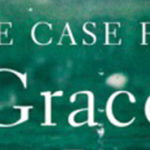(ABP)–In late November 1996, my wife and I attended Les Misérables at the Palace Theatre on Shaftesbury Avenue in London, England.
Attending the play was such a transcendent experience for us we said we would never see it again. We did not want to ruin or change the memory we shared together. We kept that promise for 16 years.

Darrell Gwaltney
|
Recently, we went to a local cinema and watched the Tom Hooper film, Les Misérables.
When we walked out, our hearts were full.
Every author makes choices when telling a story. Victor Hugo’s original Les Misérables was a 1,500-page masterpiece complete with high drama and arcane social and political history. It remains one of the greatest novels of all time.
When Alain Boublil and Claude-Michel Schönberg reimagined Hugo’s sweeping drama for the musical stage they captured the essence of the story and memorialized it with heartbreaking lyrics and tunes.
Young Cosette sweeping in an 1886 engraving for Victor Hugo’s Les Miserables Tom Hooper’s film makes choices, too. One specific choice he made was to film the actors singing live. Their acting and their singing come together in a captivating cinematic chemistry. Anguish, sorrow, love and hope tremble with each actor’s voice.
The majority of critics praise the film. Audiences are flocking to it. My wife and I left with full hearts.
Sign up for our weekly edition and get all our headlines in your inbox on Thursdays
Why?
We mark this previous year by the tragic death of innocents in public places, a divisive presidential election, conflict here and abroad and a haunting economic specter nudging us to the edge of a fiscal cliff.
We long for something to remind us that the broken can, indeed, find healing and redemption.
How could a film have been more perfectly timed for a nation desperately hungry for grace?
The story of Les Misérables sets before us classic human drama. Valjean steals a loaf of bread to feed his sister’s child and spends 19 years in prison. He seethes with anger.

Young Cosette sweeping in an 1886 engraving for Victor Hugo’s Les Misérables.
|
Fantine must provide for her illegitimate daughter, so she leaves Cosette with innkeepers who abuse the young girl. Struggling through one hardship after another to provide for her daughter, Fantine sinks down and down until she sells her hair, her teeth and her body.
The poor, the poor are everywhere. “There’s a hunger in the land,” they sing, “There’s a reckoning still to be reckoned and there’s gonna be hell to pay at the end of the day.”
Our national pain confronts us on the big screen. We must come to terms with the choices we have made. We must be honest about what parts of our soul we have sold. Our children suffer. We cannot turn our eyes away from the poor.
What shall we do?
Grace wonderfully offers second chances when it seems there are none. A gracious priest gives Valjean a second chance on life.
Grace says to Fantine that even though “life has killed the dream [she] dreamed” her daughter Cossette will have a future.
Grace holds out hope that somewhere beyond the barricade there is a world we long to see.
At the end of a difficult year and with tragedy too recent in our memories, Les Misérables creates a space for emotional release. In the darkened cinema the moviegoers collectively reach out for grace to help them find redemption in their own lives.
Valjean sang of my anger and selfishness. Javert held a mirror of legalism before my face. Fantine helped me grieve over lost opportunity. The students on the barricade reminded me of the time I thought I could change the world. Cosette and Marius gave me hope for a new generation.
Here we are in the edge between two years. Behind us we have poor choices, responsibility and suffering children. Can we remake our own lives in this coming year?
The classic finale soars with a graceful call for a better tomorrow:
“It is the music of the people
Who are climbing to the light.
For the wretched of the earth
There is a flame that never dies.
Even the darkest night will end
And the sun will rise.
They will live again in freedom
In the garden of the Lord.”
I will reach for that this year. I will reach for this grace that redeems all things. Will you reach with me?
—Darrell Gwaltney is dean of School of Religion at Belmont University.














We seek to connect God’s story and God’s people around the world. To learn more about God’s story, click here.
Send comments and feedback to Eric Black, our editor. For comments to be published, please specify “letter to the editor.” Maximum length for publication is 300 words.